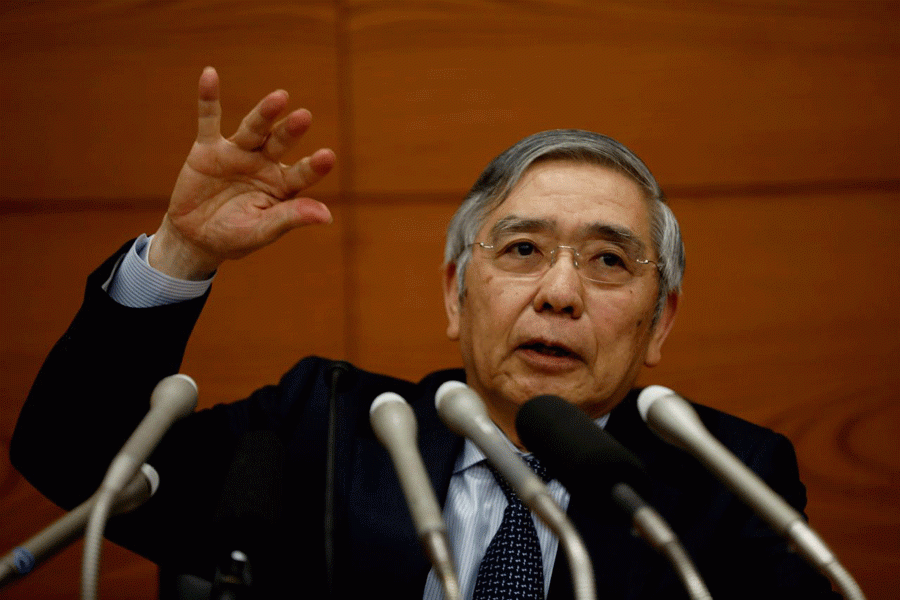Bank of Japan Governor Haruhiko Kuroda said he was watching the coronavirus impact on the economy with “grave concern,” in a nod to the growing toll the epidemic is taking on manufacturing activity and exports across Asia, according to Reuters.
The fallout from the health crisis will be a main topic of debate at a Group of 20 finance leaders’ meeting in Riyadh, Kuroda said on Friday, in a sign it could overshadow the weekend meeting of the world’s top economies.
Massive business disruptions in China are starting to spillover into the global economy, with parts shortages rippling through supply chains as far away as the United States. Asian economies that are heavily reliant on exports to China and Chinese tourists are being hit hard on both fronts.
“Huge uncertainty remains on how the spread of the new virus may affect the Japanese economy,” Kuroda told parliament.
“We’re watching the impact with grave concern and keeping a close eye on downside risks,” he added.
The epidemic has already extracted a heavy human and economic toll in China, with over 2,200 deaths, prompting authorities to take strict containment measures.
Retail sales of passenger cars in China plunged 92% on an annual basis in the first 16 days of February, according to China Passenger Car Association (CPCA).
Japan’s factory activity contracted at the sharpest pace in seven years in February, a private industry survey showed on Friday, adding to growing signs the world’s third-largest economy is on the brink of recession.
South Korea’s exports to China slumped in the first 20 days of February, indicating a grim outlook for Asia’s fourth-largest economy.
Kuroda reiterated the BOJ’s readiness to ease monetary policy further as needed. But he said it’s “not time yet” to discuss specific monetary policy steps, suggesting the BOJ won’t deploy its dwindling ammunition easily.
Japanese Finance Minister Taro Aso told reporters on Friday he will explain to his G20 counterparts that Tokyo is taking necessary steps to contain the spread of the epidemic, which has become “among risks to the global economy.”
The weak yen, however, may offer Japanese policymakers some relief by boosting the value of profits Japanese manufacturers earn overseas, some analysts said.


